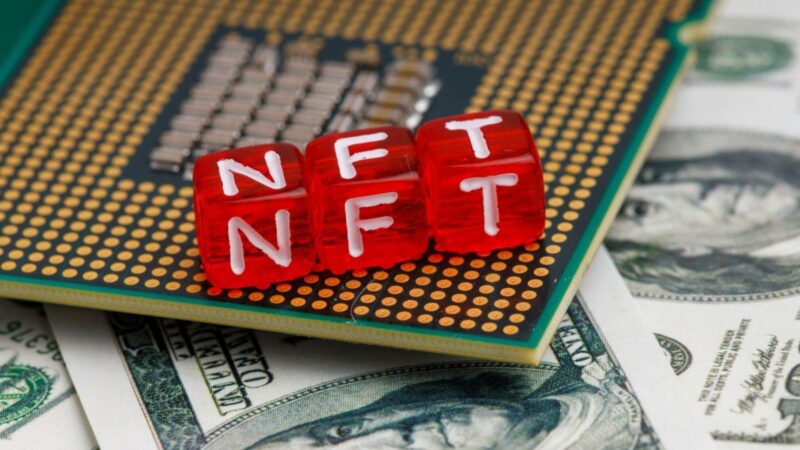
In recent times, an intriguing trend has captured the digital realm, fundamentally altering our understanding of digital assets and ownership. This intriguing development revolves around Non-Fungible Tokens (NFTs), distinctive digital tokens that frequently rely on blockchain technology as their foundation.
These NFTs have introduced us to a new dimension in the digital economy, triggering discussions about their economic implications and how they’re molding fresh financial landscapes. In this article, we’ll delve into the NFT universe, explore their impact across various economic sectors, and scrutinize the challenges and opportunities they bring forth.
Demystifying NFTs
NFTs are the contemporary digital rendition of ownership and authenticity verification for one-of-a-kind items or pieces of content. Many people get wrong when they familiarize NFT with cryptos or similar blockchain technologies. In contrast to cryptocurrencies like Bitcoin and Ethereum, which are interchangeable and can be traded on a one-to-one basis, NFTs possess non-fungibility.
This quality underscores the uniqueness of each token, rendering them unsuitable for direct swapping with other NFTs. So, to not get wrong, it is important to have brief information about NFTs, where the best sources are NFT studying materials, forums, and some news platforms.
A key attribute of NFTs lies in their singularity and unchangeable nature. Each NFT is intrinsically linked to a particular digital or physical item, and the record of ownership is etched on a blockchain, a distributed ledger that assures transparency and security. This ability empowers NFTs to represent an extensive array of digital or physical assets, including digital artwork, music, virtual real estate, collectibles, and even social media posts.
Riding the NFT Wave
NFTs have witnessed a meteoric rise in attention and popularity in recent times, primarily due to a few headline-grabbing sales. Notably, the sale of digital artwork by the artist Beeple for an astonishing $69 million in March 2021 served as a testament to the potential value of NFTs. This event sent ripples through the digital art world and beyond, igniting the passions of creators and investors alike, who were eager to explore the NFT realm.
The NFT marketplace, where these tokens are traded, has also seen a proliferation. Platforms such as OpenSea, Rarible, and SuperRare have provided a stage for creators to mint, list, and sell their NFTs. This surge in NFT marketplaces has unlocked new economic prospects for artists, musicians, gamers, and content creators, granting them the means to monetize their digital creations directly and efficiently.
The Economic Impacts of NFTs
The ascent of NFTs brings forth a multitude of economic ramifications, some of which are already discernible, while others are yet to fully unfurl:
- Novel Revenue Streams for Creators: NFTs bestow upon content creators the ability to monetize their digital assets in unprecedented ways. Artists, musicians, and influencers can directly offer their work to their audience, sidestepping intermediaries and ensuring a fair share of the proceeds.
- Digital Ownership and Provenance: NFTs serve as transparent and immutable records of ownership and provenance. This attribute holds particular significance in the art world, where issues of forgery and copyright violations have persistently posed problems.
- Collectibles and Gaming: Gamers can buy, sell, and swap in-game items, character skins, and avatars as NFTs. This opens up a new horizon within the gaming industry, providing players with genuine ownership of their in-game assets.
- Virtual Real Estate: Users can purchase and possess virtual land, buildings, and assets in these digital domains. This presents the possibility of a virtual real estate market with its own unique economic dynamics.
- Tokenization of Real-World Assets: Outside the digital domain, NFTs are progressively being employed to represent ownership of tangible assets like real estate, stocks, and valuable physical collectibles. The tokenization of tangible assets has the potential to render investing in such properties more accessible and efficient.
- Liquidity and Fractional Ownership: NFTs can be effortlessly traded and subdivided into smaller portions, facilitating the creation of fluid markets. This enables the collective ownership of unique and valuable assets, enhancing liquidity and diversification.
- Speculation and Price Volatility: The swift ascent of NFTs has given rise to concerns about speculation and price volatility. Similar to traditional assets, NFT values can be susceptible to bubbles and crashes, presenting investment risks.
- Environmental Concerns: Many NFTs are constructed on blockchain platforms like Ethereum, which are known for their substantial energy consumption. Consequently, the environmental impact of NFTs has become a pressing concern as they grow in popularity.
- Legal and Copyright Issues: The use of NFTs in the sale of digital art and other intellectual property has raised complex questions about copyright and intellectual property rights. Artists and creators must navigate the legal intricacies linked to the ownership and distribution of their work.
NFTs and the Financial Landscape
NFTs aren’t confined to being isolated digital entities; they are gradually merging with the broader financial ecosystem. Several ways in which NFTs are influencing traditional finance include:
- NFT Investment Funds: As the NFT market matures, investment funds and portfolios dedicated to NFTs are emerging. This enables investors to participate in the NFT market indirectly through these funds.
- NFT-backed Loans: Specific financial institutions are currently investigating the idea of utilizing NFTs as collateral for loan purposes. This arrangement empowers NFT holders to obtain liquidity while preserving ownership of their digital assets.
- NFT Derivatives: Analogous to traditional assets, there is a burgeoning market for NFT derivatives, enabling investors to speculate on NFT prices without possessing the underlying tokens.
- Crypto and NFT Integration: NFT marketplaces are increasingly integrated with cryptocurrency exchanges, streamlining the process of purchasing NFTs and potentially enhancing market liquidity.
- Cross-Platform Integration: NFTs are not restricted to a solitary blockchain or platform. Cross-platform integration allows NFTs to be utilized and traded across various ecosystems, broadening their reach and economic impact.
The Journey Forward
The NFT arena is still evolving, and the full-scale impact on the economy remains uncertain. Nonetheless, it’s apparent that NFTs have introduced fresh avenues for creators and investors, reshaping a multitude of industries. However, the challenges associated with speculation, legal intricacies, and environmental concerns cannot be overlooked.
As NFTs continue to gain traction, it’s imperative for regulators, creators, and investors to collaborate in crafting a framework that facilitates the responsible expansion of this digital asset class. Clear and consistent regulations can help mitigate risks and safeguard the interests of all stakeholders.
Furthermore, it is imperative for the NFT community to confront the increasing apprehensions regarding the ecological impact of NFTs. This may involve exploring more energy-efficient blockchain technologies or implementing sustainability initiatives to ensure the long-term viability of NFTs.
In conclusion, NFTs are reshaping the economic landscape by introducing innovative ways for creators to monetize their digital assets and offering investors entry into unique markets. The complete extent of their impact is yet to be unveiled, but one thing is undeniable – they are actively sculpting fresh financial ecosystems. As the NFT domain continues to evolve, it is imperative to strike a balance between innovation and responsibility, ensuring a sustainable and inclusive digital economy.
The future of NFTs hinges on how adeptly these challenges are addressed and how seamlessly they integrate with conventional financial systems. The economic implications of NFTs are substantial, and their influence on the financial landscape is only poised to intensify in the years to come.




